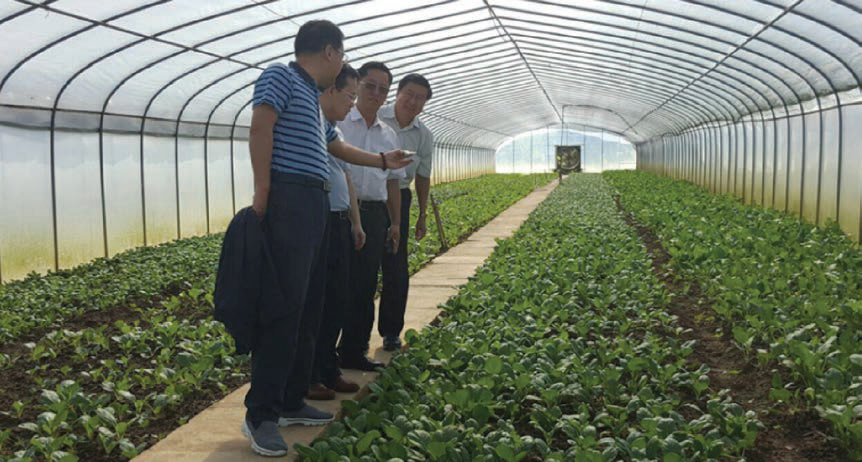Hua Ho produces pesticide-free vegetables at its farms. It is a model of best practice in agriculture.
Introduction
The Hua Ho group is best known in Brunei Darussalam for its chain of supermarkets and department stores. More recently, it has also gained recognition in the agriculture sector by using modern and sustainable farming methods.
The Hua Ho Agricultural Farm was established in 1947 by Pehin Kapitan China Kornia Diraja Dato Paduka Lau Ah Kok. The Department of Agriculture and Agrifood awarded the farm with a 12-hectare agricultural land in 1999 located at Sibongkok, Kampung Masin area in Muara District. In September 2000, the farm started expanding into other agricultural development areas in the Muara District, such as Batumpu, Sungai Tajau, and Junjungan; and in the Rampayoh area in Belait District. Today, its farms supply vegetables, fruits, chickens, and eggs.
Best Practices
Lau How Teck took over management of the Hua Ho Agricultural Farm from his father. He has gradually transitioned the farm from conventional to modern farming. He introduced the closed-house system in poultry production, hydroponics and greenhouse system in vegetable production, and fertigation and protected cultivation for nonseasonal fruits production.
Using new technology, Lau How Teck has increased farm productivity, production, and sales since 2000. In 2013, the farm produced 117 metric tons of fruits and vegetables. By 2017, it was producing more than 129 metric tons.
Through his achievement and involvement in the agriculture sector, Lau How Teck was awarded with the Peladang, Petani dan Penternak Berjaya in conjunction with Hari Peladang, Petani dan Penternak dan Nelayan in November 2011.
On 15 April 2014, Hua Ho Agricultural Farm and Ladang Tunas Harapan Sendirian Berhad farm, also under Lau How Teck’s management, were accredited with the Brunei Darussalam GAP (Good Agricultural Practice) seal by the Department of Agriculture and Agrifood.
Lau How Teck is committed to meet food safety and product quality standards and has also introduced “pesticide-free” vegetables.
Benefits and Impacts
Modern technologies, such as the use of polytunnel protected houses and semi-protected houses, have increased the quality and quantity of crop production. A protected house minimizes pest and disease infestation.
The farm also uses biopesticides as a substitute for chemical pesticide to avoid chemical leaching to drains and the nearby river. It uses natural compost from chicken manure from its poultry farms to improve the nutrients in the soil. This enables the farm to reduce farm inputs in terms of fertilizers and prevent overuse of fertilizers. Besides benefiting the environment, this practice also enhances the well-being of communities by producing high-quality and safe products.
However, not all of the company’s experiences in farming have been easy. Natural disasters, such as flooding during the rainy season, have caused substantial damage to crops since the farm is in a low-lying area. To mitigate damage from floods, the farm could build retention ponds and a proper drainage system. This will enable production to continue to flourish in the years to come.
This article is adapted from the case study prepared by the Department of Agriculture and Agrifood, Ministry of Primary Resources and Tourism, Brunei Darussalam.
